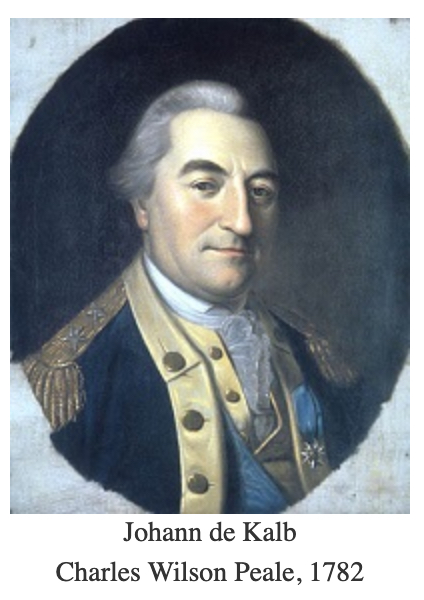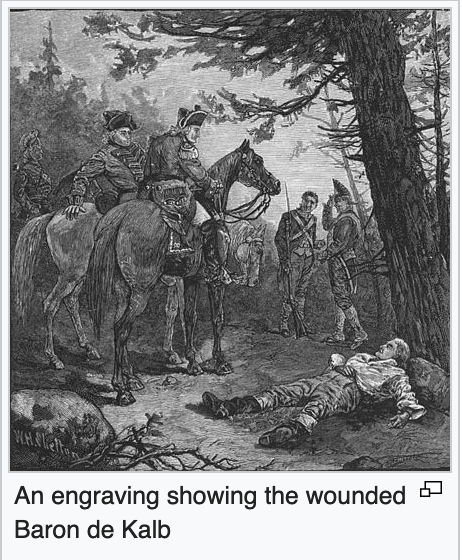KALB, Johann, called Baron de Kalb (1721-80), was a German-born soldier, who fought in the American Revolution. DeKalb was greatly revered by his contemporaries. In addition to our own DeKalb Pike, numerous towns, counties, and streets in the U.S. are named DeKalb after him.
In 1747 he became brigadier-general under Victor-François, 2nd duc de Broglie. During the French and Indian War (1754-1763), he was sent to the colonies as a secret agent to determine the attitude of the colonists toward the British. He traveled extensively throughout the colonies, clandestinely observing the temperament of the colonists. He was eventually arrested on suspicion of spying, but was released for lack of evidence. When he returned to Paris, his report to the French government told of the dissatisfaction of the colonies with British rule.
Two decades later, a representative of those same disgruntled colonists, Benjamin Franklin, would appeal for assistance from the French, in their fight for Independence from Britain. When Lafayette decided to aid the American cause, he persuaded Baron DeKalb to accompany him. Lafayette and DeKalb arrived in the colonies in the spring of 1777.
On September 15, 1777, De Kalb was commissioned a Major-general. He joined Washington and served on his staff until his appointment to a command, camping with Lafayette, Washington and the Continental Army at Valley Forge as the winter of 1777 approached.
On May 6, 1778, after enduring the harsh winter at Valley Forge, Washington issued orders that the army should assemble to celebrate the very welcome news of the alliance with France. DeKalb commanded the “second line on the left” in the arrangement of the troops on the Grand Parade.
In August 1780, as he lay dying in Camden, South Carolina, de Kalb was reported to have said to a British officer, “I thank you sir for your generous sympathy, but I die the death I always prayed for: the death of a soldier fighting for the rights of man.”
Upon visiting de Kalb’s grave several years after his death, George Washington is reported to have said: “So, there lies the brave de Kalb. The generous stranger, who came from a distant land to fight our battles and to water with his blood the tree of liberty. Would to God he had lived to share its fruits!”


